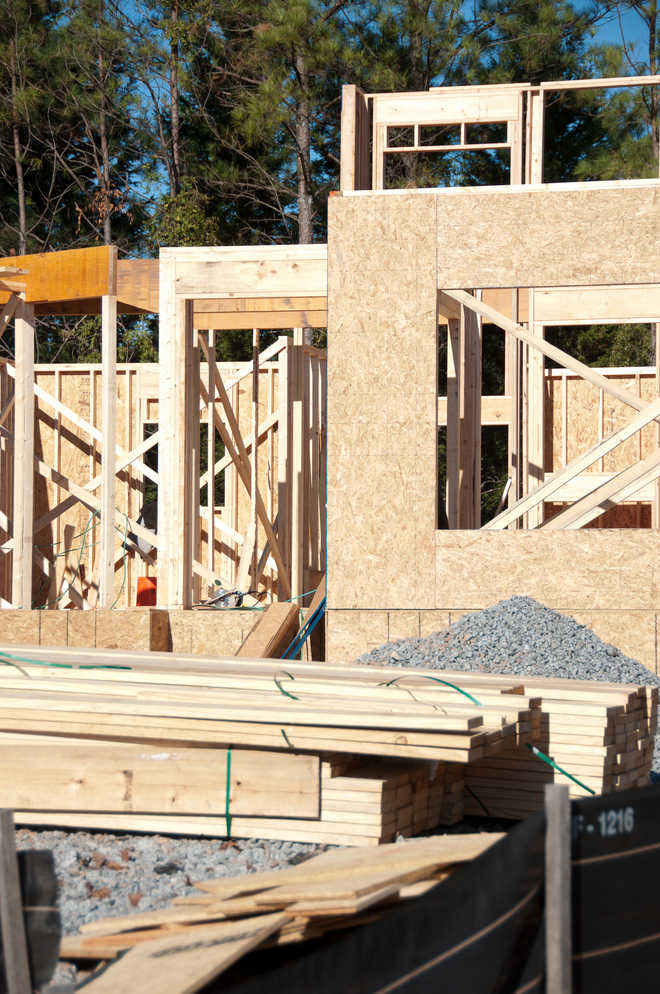Stumbling blocks
Pushpa Girimaji
I have filed a case against a builder for delaying a housing project by four years and causing me financial loss, mental harassment and suffering. However, he is coming up with a number of excuses for such delays and arguing that these were circumstances beyond his control and therefore he cannot be held liable for the delay. Can he escape with such arguments? I am worried now.
I do not see any reason for you to get worried. It is now an established fact of law that builders who do not complete their housing projects in time have to pay damages to consumers. In Lucknow Development Authority Vs MK Gupta (CA No 6237 of 1990, order dated 5-11-1993), the Supreme Court clearly said that “when possession of property is not delivered within stipulated time, the delay so caused is denial of service”. And the builder has to compensate the consumer for such denial of service. And I really do not see what ‘circumstances beyond his control’ that a builder can cite to explain away a delay of four years!
Can you quote any recent judgement of the consumer court, if any, dealing specifically with this issue?
In Ashish Gupta Vs M/S Unitech Pvt Ltd, (Consumer case no 594 of 2016, date of the Order: November 28, 2016) the apex consumer court critically looked at a number of such excuses raised by the builder and dismissed them as untenable and unsustainable. I am sure the excuses being given by the builder in your case, too, would be covered by this order. So I give below a detailed account of the excuses given by the builder and the rebuttal of the court.
The first reason for ‘delay beyond his control’ given by the builder was that the economic slowdown and the consequent recession in the real estate market had led to the unavailability of adequate funds, leading to delays in construction. Holding this as unsustainable, the Commission pointed out that since some of the buyers had paid almost 95 per cent of the sale consideration and others were to make the payment linked to the progress of construction, the builder cannot use non availability of funds as a plea.
The second excuse given for delay was shortage of labour due to implementation of social schemes such as National Rural Employment Guarantee Scheme (NREGS). Dismissing this argument, the Commission said there was no evidence of the builder attempting to recruit labour and having failed. Besides, if the labour was scarce, it would have affected all other builders as well as those individuals constructing houses, but that was not the case.
The third contention of the builder was that the use of ground water for building purposes was stayed by Punjab & Haryana High Court through its order of July 16, 2012. Again holding this as an invalid reason, the Commission referred to the order of the High Court, wherein it had pointed out that builders were using ground water for construction, despite a public notice issued under Section-5(3) of the Environment Protection Act, 1986, way back in December 2000, imposing a complete prohibition on the use of underground water for construction, without prior approval of the competent authority. So the builder was aware of the prohibition and should have taken it into account before fixing the time for completion of the project, the Commission said.
To the other excuse that there was a delay in obtaining the environmental clearance, the Commission pointed out that since the size of the project was more than 20,000 sq ft. of built-up area, the builder knew that environmental clearance would be necessary and that the clearance would be given only after the project was approved by State Environment Impact Assessment Committee and then by State Level Environment Impact Assessment Authority. So he should have obtained the necessary environmental clearance before accepting the booking or informed the buyers that the construction would commence only after the environmental clearance. Having done neither, he cannot now use this as an excuse for delay, the Commission said.
It similarly dismissed the argument of the builder about reduction in the availability of bricks in the market on account of certain restrictions placed by the Ministry of Environment and Forests on the manufacture of clay bricks and said the “wages of labour and the cost of the building material may have gone up with the passage of time but it would be difficult to accept that neither the required labour nor the building material in sufficient quantity was available in the open market.”









